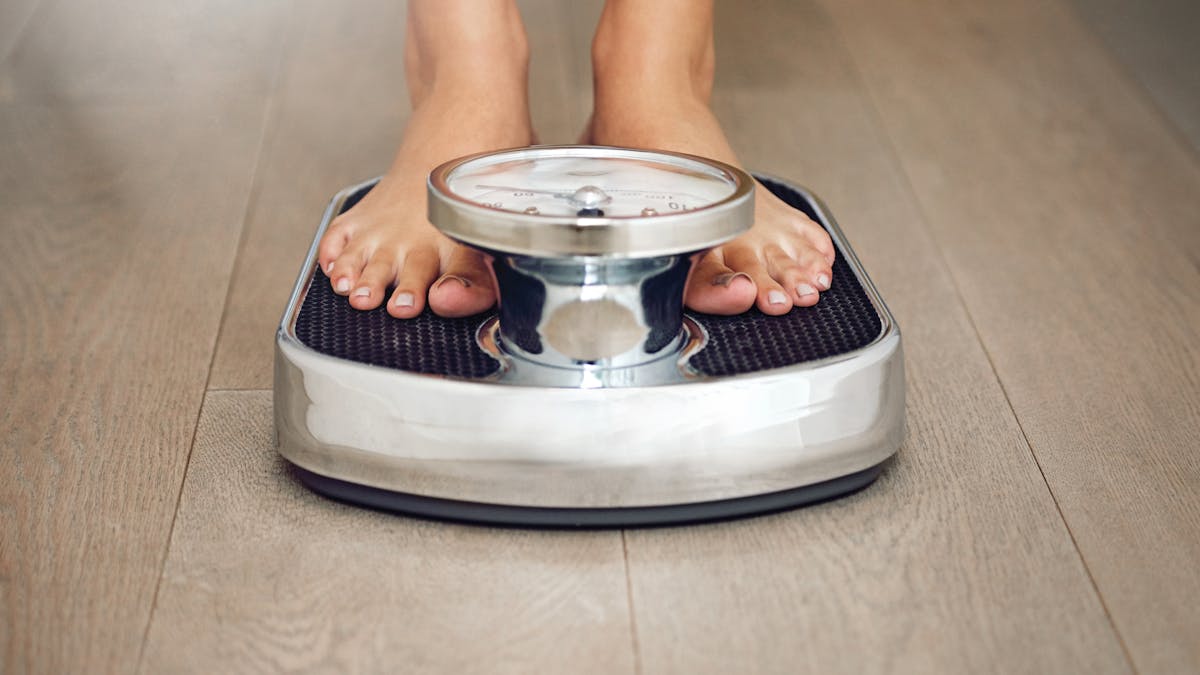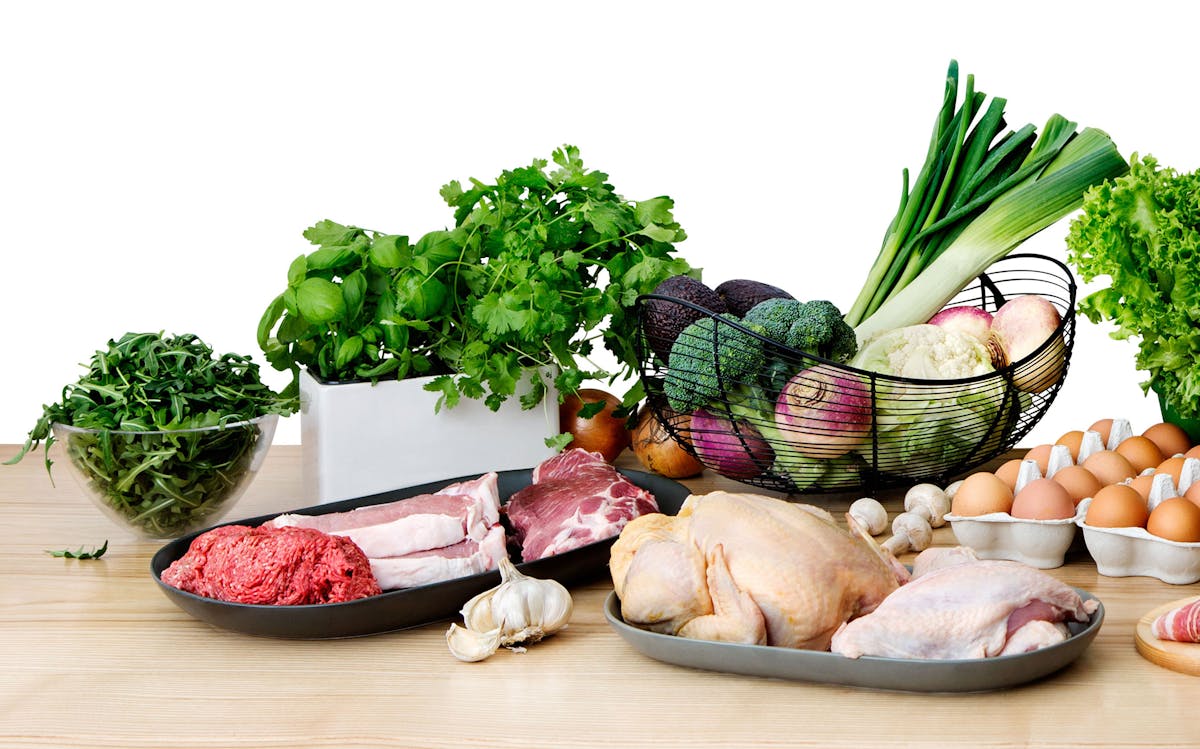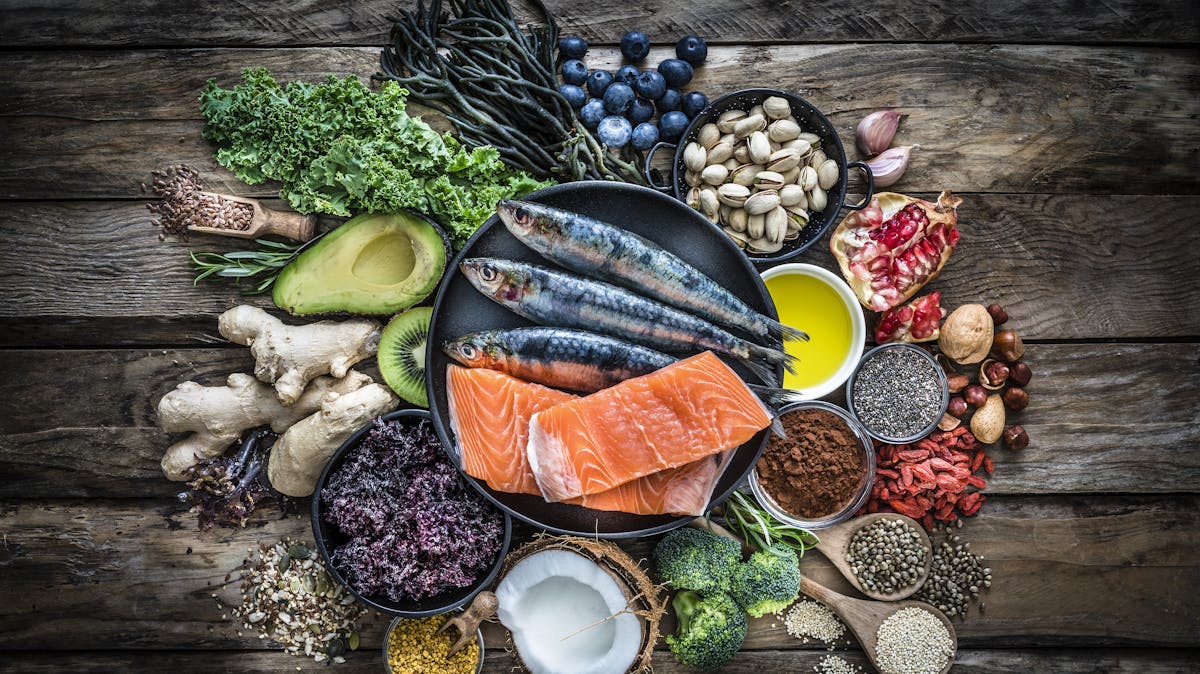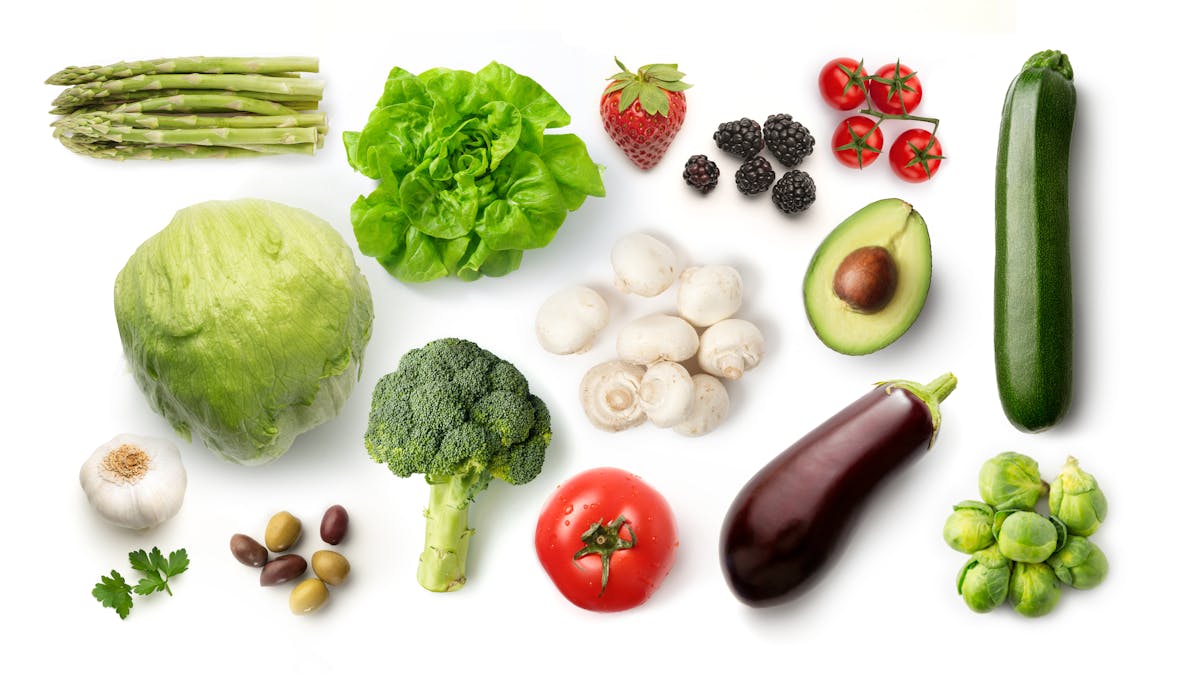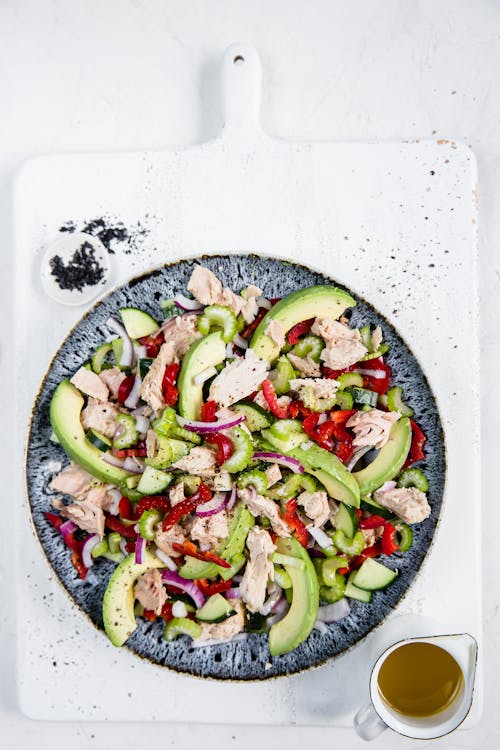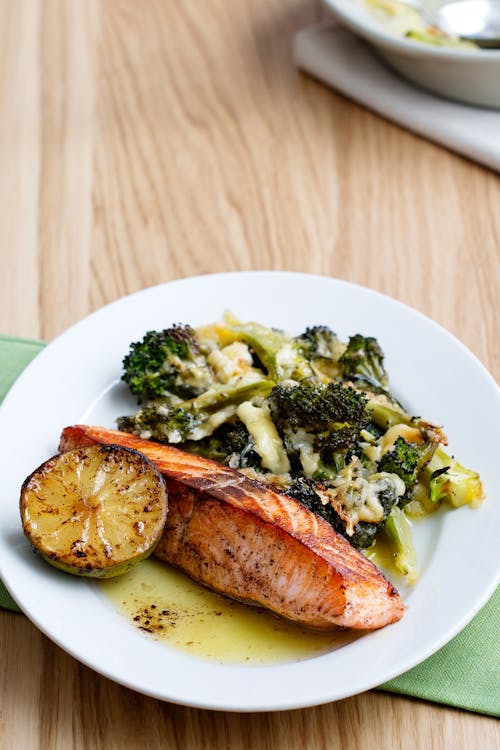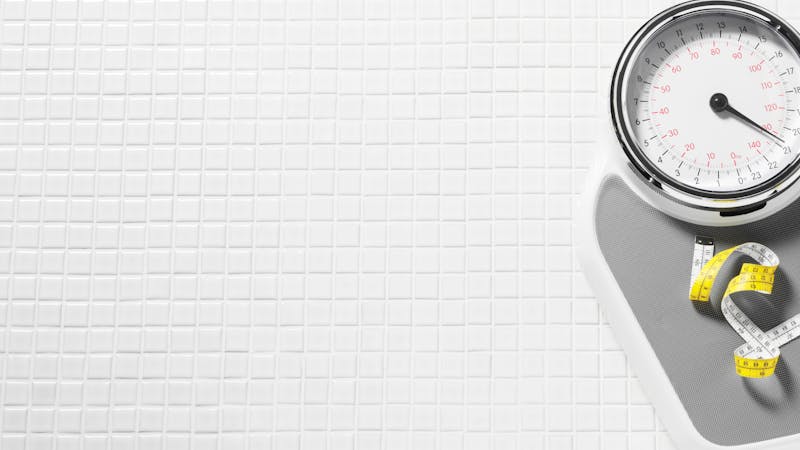How to lose weight fast: 5 easy evidence-based steps
Do you want to lose weight as quickly as possible? When it comes to fast weight loss, it’s important to take a healthy approach — one that promotes loss of fat, retention of muscle, and increases your likelihood of keeping the weight off.
After reading our new guide, you’ll be on your way to losing weight quickly in five simple steps.

What is “fast” weight loss?
Health authorities typically recommend losing about 1 to 2 pounds (0.5 to 0.9 kilo) per week, and many people seem to lose weight at about this rate.1
Therefore, losing any more than 2 pounds (0.9 kilo) per week is considered “fast” weight loss. Yet for many people, that may not sound quick.
While losing 10 pounds (4.5 kilos) in a week may technically be possible for some — especially those who carry a lot of excess weight — it isn’t realistic for most of us.
What about severe calorie restriction?
What if you eat only 500 or 600 calories a day? Although drastically cutting calories can cause rapid weight loss, consuming far less than your body needs can be counterproductive.
Severe calorie restriction can make you feel extremely hungry, deprived, and fatigued. What’s more, it often leads to loss of muscle, or lean mass.2
Generally speaking, the more lean mass you have, the more calories your body burns at rest.3 Loss of muscle during very-low-calorie dieting can slow down metabolism, making future regain much more likely.4
So fast weight loss via severe calorie restriction may not be a good idea for many people.
Fast, healthy, sustainable weight loss
Is it possible to lose weight both rapidly and permanently? Yes, indeed.
Recent research suggests that people who lose weight quickly are just as likely to keep pounds or kilos off as those who lose weight more gradually.5Moreover, preserving lean mass seems to decrease a person’s risk for regain, regardless of how long it takes them to lose the weight.6
Therefore, for fast weight loss that’s also healthy and sustainable, aim to lose fat without losing muscle.
In addition, several factors influence how quickly you can lose weight. Women typically lose weight more slowly than men.7 And because metabolic rate tends to decline with age, older women may lose at a slower pace than younger men and women — despite putting in just as much effort, if not more.
Are you ready to start losing fat in a healthy way while enjoying delicious, nourishing food that prevents you from feeling hungry or deprived?
Below, you’ll find the simple steps to take to start losing weight quickly.
Five simple steps to fast weight loss
1. Cut way back on carbs
Start by eliminating foods high in carbs: sweets, bread, pasta, fruit, and similar foods. Going low carb can significantly speed up weight loss, for several reasons.
First, according to high-quality research, very-low-carb diets — also known as keto diets — reduce hunger.8This allows you to eat less and lose weight quickly without deliberately restricting calories and without feeling hungry or deprived.9
Several studies have shown that low-carb eating is more effective than other diets for losing fat quickly.10
This impressive fat loss may be partly due to the drop in insulin levels that occur during keto eating. When insulin levels are low, your body is primed to burn rather than store fat.11
Finally, some research suggests that continuing to eat low carb to maintain your new weight may help keep your metabolic rate up, increasing the likelihood that you’ll keep the weight off.12
How many carbs should you eat to lose weight quickly? Sticking to 20 or fewer grams of net carbs (total carbs minus fiber) per day may produce the fastest results.13
But instead of counting every carb, you can simply choose foods from our ketogenic diet foods list below and avoid any foods that aren’t on it.
Note: Be sure to read our tips to avoid or minimize symptoms of the keto flu before going low carb.
2. Eat plenty of protein
Protein is an essential nutrient your body needs to survive and thrive.14 In addition, boosting your protein intake may help speed up your weight loss.
For starters, protein can suppress your appetite by triggering your body to release hormones that help you feel full and satisfied.15
In addition, protein has a higher “thermic effect” than fat and carbohydrates. This means your body burns slightly more calories digesting protein compared to the two other macronutrients.16
Eating plenty of protein can also help you retain your all-important lean mass and prevent your metabolism from slowing down as you lose weight.17
Indeed, several systematic reviews of randomized controlled trials have shown that higher-protein diets tend to promote weight loss while preserving muscle.18
We recommend consuming 1.2 to 2.0 grams of protein per kilogram of reference weight or ideal body weight per day. For example, a woman who currently weighs 170 pounds but whose ideal body weight (or reference weight) is 130 pounds (59 kilos) would aim to eat 69 to 118 grams of protein per day.19
Check out our list of top 10 high protein foods — which includes vegetarian options — to see how much protein your favorite foods provide.
3. Keep fat intake moderate
When you’re trying to drop pounds or kilos quickly, eating less fat may seem to make sense.
However, it’s not a good idea to eat a diet that’s low in both carbs and fat. You’ll likely end up feeling deprived within a few days or weeks — and it certainly isn’t sustainable long term.20 There’s no need to fear fat.
That said, eating excessive amounts of fat isn’t a good strategy for quick weight loss either. Even on a very-low-carb diet, eating more fat than your body needs can slow down rather than speed up weight loss.21
So don’t add large amounts of butter, heavy cream, or other fat to your food. Also, avoid or minimize your intake of fat bombs and similar treats that provide very little protein or other nutrients.22
Instead, eat enough fat to add flavor and richness to your food but not so much that you feel stuffed. Let your body burn its stored fat rather than the fat you are eating.
4. Go for non-starchy vegetables
Leafy greens and other non-starchy vegetables are excellent foods for fast weight loss. They’re very low in carbs and calories yet provide fiber that can help you feel full.23
The Atkins diet, which has helped millions of people lose weight, recommends eating two cups of leafy green vegetables and one cup of other low-carb vegetables every day. This advice is designed to produce fast weight loss during the initial stage of the diet.
In the 2007 A to Z weight loss trial, people who followed the Atkins diet lost an average of 10 pounds within the first two months — far more than people who followed the other three diets being studied.24Other studies have also reported rapid weight loss in participants who included several daily servings of low-carb vegetables.25
While these studies don’t prove that the veggies caused the weight loss, they do show that low-carb, fiber-filled veggies can be part of a rapid weight loss diet.
How many low-carb vegetables should you eat? We recommend that you eat as many keto-friendly vegetables as you want while staying within your daily carbohydrate target. For many people, this will be about two servings per day, but a great deal of individual variation exists.
5. Get some exercise, but don’t overdo it
Will exercising for several hours every day help you lose weight faster? According to studies, physical activity by itself has a limited effect on weight loss. What you eat appears to play a much larger role.26
However, getting regular exercise can provide benefits during weight loss.
Engaging in aerobic activity (e.g., walking briskly or bicycling) and resistance training (e.g., lifting weights) can boost your metabolic rate and help preserve muscle mass as you lose weight.27
While it’s good to engage in physical activity, working out vigorously for several hours every day isn’t necessary or advisable for weight loss and good health. Plus, making dramatic changes to both your diet and exercise routine at the same time can be overwhelming.
So try to lift weights, do push-ups, or perform other resistance exercise for 15 to 30 minutes a few times a week. Walk, run, dance, ride a bike, or do similar aerobic activity for 30 to 60 minutes on most days, if possible.
In short, aim to move your body in some way every day without forcing yourself to do more than you can comfortably handle.
Read our complete exercise guide to learn more about the types of physical activity that may be best for you.

Meal planning ideas for quick weight loss
Putting together very-low-carb meals can be simple:
- Start with a generous serving of protein (meat, fish, eggs, cheese, or tofu)
- Add as many low-carb vegetables as you like
- Use fat as needed for cooking or in salad dressing
- Season with salt, pepper, and spices
- Drink water, coffee, or tea
What about calories? We don’t recommend counting calories when trying to lose weight. However, we suggest that you eat only when hungry and stop as soon as you begin to feel full.

Here are some delicious, filling low-carb meal ideas for getting started:
Breakfast
Lunch
Dinner
Other tips to speed up weight loss and stay on track
- Incorporate intermittent fasting: Recent research suggests that time-restricted eating or intermittent fasting can help some people lose weight.28 Learn more in our complete guide to intermittent fasting.
- Quaff some caffeine: According to studies, caffeine may help you lose weight by slightly boosting your metabolic rate.29 Most people can drink up to two to three cups of coffee or tea per day. However, limit your intake to one cup early in the day, or none at all, if too much caffeine makes you feel jittery, raises your blood pressure, or prevents you from getting high-quality sleep.
- Avoid or limit alcohol: Drinking alcoholic beverages can slow down weight loss because your body burns alcohol before it burns carbs, protein, and fat — including body fat.30Alcohol also tends to increase appetite and decrease inhibitions, which may lead you to overeat without even realizing it.31
- Eat slowly: To speed up weight loss, relax your eating pace. Research suggests that eating slowly may help you naturally take in less food and lose weight.32
- Take a deep dive into weight loss: Our complete guide to losing weight covers additional ground, including the effects of medications, sweeteners, hormones, and more.

Sign up for our free one-month membership trial, and you’ll have instant, FREE access to the program for 30 days.
Yes, you can lose weight quickly. However, the rate at which you lose isn’t always within your control. Also, preventing loss of muscle may be key for long-term weight-loss success. Following our five easy steps can help you lose weight in a healthy way without feeling hungry, at a pace that’s right for your body and sets you up to keep the weight off long term. Get instant access to healthy low-carb and keto meal plans, fast and easy recipes, weight loss advice from medical experts, and so much more. A healthier life starts now with your free trial!
Take-home message
Start your FREE 7-day trial!
Learn how to do a keto diet
How to lose weight fast: 5 easy evidence-based steps - the evidence
This guide is written by Franziska Spritzler, RD and was last updated on June 19, 2025. It was medically reviewed by Dr. Bret Scher, MD on December 16, 2020.
The guide contains scientific references. You can find these in the notes throughout the text, and click the links to read the peer-reviewed scientific papers. When appropriate we include a grading of the strength of the evidence, with a link to our policy on this. Our evidence-based guides are updated at least once per year to reflect and reference the latest science on the topic.
All our evidence-based health guides are written or reviewed by medical doctors who are experts on the topic. To stay unbiased we show no ads, sell no physical products, and take no money from the industry. We're fully funded by the people, via an optional membership. Most information at Diet Doctor is free forever.
Read more about our policies and work with evidence-based guides, nutritional controversies, our editorial team, and our medical review board.
Should you find any inaccuracy in this guide, please email andreas@dietdoctor.com.
According to a study of more than 21,000 people who were trying to lose weight, women lost 1.1 pound (0.5 kilo) and men lost 1.4 pounds (0.6 kilo) per week, on average:
American Journal of Public Health 1992: Weight loss attempts in adults: goals, duration, and rate of weight loss [observational study; weak evidence] ↩
A systematic review of randomized controlled trials (RCTs) and observational studies found that diets providing less than 800 calories led to rapid weight loss that included a substantial loss of lean mass:
The International Journal of Obesity 2007: Changes in fat-free mass during significant weight loss: a systematic review [systematic review of randomized trials; strong evidence]
In one trial, overweight people who ate ~500 calories per day for eight weeks lost 4.6 pounds (2.1 kilos) of lean mass, which accounted for 17% of their total weight loss:
Clinical Obesity 2011: Comparison of a low-energy diet and a very low-energy diet in sedentary obese individuals: a pragmatic randomized controlled trial [randomized controlled trial; moderate evidence] ↩
Sports Medicine 2006: The role of diet and exercise for the maintenance of fat-free mass and resting metabolic rate during weight loss [overview article; ungraded] ↩
In a five-week study, people who ate 500 calories per day lost an average of nearly 7 times as much lean mass as those who ate 1,250 calories per day. And those who lost the largest amount of lean mass were most likely to regain weight:
Obesity (Silver Spring) 2016: The effect of rate of weight loss on long-term weight regain in adults with overweight and obesity [randomized crossover trial; moderate evidence]
In a 2020 follow-up to an earlier trial, researchers reported that participants who lost significant amounts of lean mass while following an 800-calorie diet for eight weeks were most likely to regain weight within six months:
The American Journal of Clinical Nutrition 2020: Associations between the proportion of fat-free mass loss during weight loss, changes in appetite, and subsequent weight change: results from a randomized 2-stage dietary intervention trial [randomized crossover trial; moderate evidence] ↩
Clinical Nutrition 2018: The impact of rate of weight loss on body composition and compensatory mechanisms during weight reduction: A randomized control trial [randomized controlled trial; moderate evidence]
The Lancet. Diabetes & Endocrinology 2014: The effect of rate of weight loss on long-term weight management: a randomised controlled trial [randomized controlled trial; moderate evidence]
International Journal of Behavioral Medicine 2010: The association between rate of initial weight loss and long-term success in obesity treatment: does slow and steady win the race? [randomized controlled trial; moderate evidence] ↩
Obesity Reviews 2019: Associations between the rate, amount, and composition of weight loss as predictors of spontaneous weight regain in adults achieving clinically significant weight loss: A systematic review and meta-regression [systematic review of randomized trials; strong evidence]
Obesity (Silver Spring) 2016: The effect of rate of weight loss on long-term weight regain in adults with overweight and obesity [randomized crossover trial; moderate evidence] ↩
In a 2018 trial of more than 2,000 overweight adults who followed a very-low-calorie diet for eight weeks, men lost 17% more weight than women did. In addition, women lost more lean mass compared to men:
Diabetes, Obesity and Metabolism 2018: Men and women respond differently to rapid weight loss: Metabolic outcomes of a multi-centre intervention study after a low-energy diet in 2500 overweight, individuals with pre-diabetes [randomized controlled trial; moderate evidence] ↩
Obesity Reviews 2015: Do ketogenic diets really suppress appetite? A systematic review and meta-analysis [strong evidence] ↩
In a crossover study, obese men followed a non-calorie-restricted keto diet or a non-calorie-restricted moderate-carb diet for 4 weeks each. Participants reported being less hungry on the keto diet than on the moderate-carb diet. Moreover, after 4 weeks of keto eating, the men had lost an average of 14 pounds (6.3 kilos), compared to 10 pounds (4.3 kilos) on the moderate-carb diet:
The American Journal of Clinical Nutrition 2008: Effects of a high-protein ketogenic diet on hunger, appetite, and weight loss in obese men feeding ad libitum [randomized crossover trial; moderate evidence]
In another study, overweight people who followed a non-calorie-restricted keto diet lost 26 pounds (12 kilos) within 24 weeks:
Annals of Internal Medicine 2004:A low-carbohydrate, ketogenic diet versus a low-fat diet to treat obesity and hyperlipidemia: a randomized, controlled trial [randomized crossover trial; moderate evidence] ↩
In a recent eight-week trial, older adults who ate a keto diet lost 13 pounds (5.9 kilos) and 9.7% of their body fat, while those who ate a low-fat diet lost 2 pounds (0.9 kilo) and 2% of their body fat:
Nutrition and Metabolism 2020: Effects of weight loss during a very low carbohydrate diet on specific adipose tissue depots and insulin sensitivity in older adults with obesity: a randomized clinical trial [randomized controlled study; moderate evidence]
Other low-carb diet trials have had similar outcomes:
In a randomized controlled trial, men who followed a keto diet lost 9 pounds (4.2 kilos) in 20 days. They also lost significantly more fat than the group who followed a Mediterranean diet for the same time period, although the study authors did not report exact amounts:
Lung 2015: Effects of twenty days of the ketogenic diet on metabolic and respiratory parameters in healthy subjects [randomized controlled study; moderate evidence]
In 2011, researchers studied the effects of a 12-week ketogenic diet in 22 people with metabolic syndrome. By the end of the study, participants had lost an average of 32 pounds (14.5 kilos). Although researchers did not report changes in body fat, the men lost an average of nearly 7 inches (17 cm) from around their waist, suggesting a significant decrease in visceral fat:
Journal of Medicinal Food 2011: A pilot study of the Spanish Ketogenic Mediterranean Diet: an effective therapy for the metabolic syndrome [non-randomized trial; weak evidence]
In a 12-week study, obese women who ate a keto diet providing about 1,800 calores per day lost 30 pounds (13.6 kilos), on average. Their waist size decreased by an average of 4.5 inches (11.6 cm), suggestive of substantial visceral fat loss:
Nature 2020: The effects of a low calorie ketogenic diet on glycaemic control variables in hyperinsulinemic overweight/obese females [non-controlled study; weak evidence] ↩
Research shows when overweight people follow a ketogenic diet and their insulin levels decline, they tend to lose weight very effectively:
Journal of Medical Internet Research 2017: An online intervention comparing a very low-carbohydrate ketogenic diet and lifestyle recommendations versus a plate method diet in overweight individuals with type 2 diabetes: a randomized controlled trial [randomized controlled trial; moderate evidence]
Diabetes & Metabolic Syndrome 2017: Induced and controlled dietary ketosis as a regulator of obesity and metabolic syndrome pathologies [randomized controlled trial; moderate evidence]
Lipids 2009: Carbohydrate restriction has a more favorable impact on the metabolic syndrome than a low fat diet [non-controlled study; weak evidence] ↩
In a 2012 study, 21 adults who’d lost weight on a calorie-restricted diet were found to burn around 300 calories more per day during weight maintenance if they followed a low-carb diet compared to a low-fat diet:
Journal of the American Medical Association 2012: Effects of dietary composition during weight loss maintenance: a controlled feeding study [randomized trial; moderate evidence]
A similar but larger study in 164 people seems to confirm this effect, with participants who’d previously lost weight burning anywhere from 200 to nearly 500 more calories per day on a low-carb maintenance diet compared to a higher-carb maintenance diet:
British Medical Journal 2018: Effects of a low carbohydrate diet on energy expenditure during weight loss maintenance: randomized trial [randomized trial; moderate evidence] ↩
This is mainly based on clinical experience [weak evidence] ↩
Muscle, hormones, enzymes, and other structures in your body are made up of 20 amino acids, the building blocks of protein.
Every day, old proteins are broken down. Although most are recycled, a portion needs to be replenished with new amino acids, nine of which are essential, meaning your body can’t make them. These nine amino acids must come from protein in your diet:
International Journal for Vitamin and Nutrition Research 2011: Protein turnover, ureagenesis and gluconeogenesis [overview article; ungraded] ↩
The American Journal of Clinical Nutrition 2013: Contribution of gastroenteropancreatic appetite hormones to protein-induced satiety [randomized crossover trial; moderate evidence]
Nutrition Journal 2014: Effects of high-protein vs. high- fat snacks on appetite control, satiety, and eating initiation in healthy women [randomized trial; moderate evidence]
Advances in Nutrition 2015: Controversies surrounding high-protein diet intake: satiating effect and kidney and bone health [review of observational studies; weak evidence] ↩
Reproduction, Nutrition & Development 1993: Thermic effect of food and sympathetic nervous system activity in humans [review article; ungraded] ↩
In a 2013 study, overweight people who ate a high-protein diet while losing weight retained more lean mass and experienced a smaller decrease in resting metabolic rate compared to those who ate less protein diet during weight loss:
The Journal of Nutrition 2013: Normal protein intake is required for body weight loss and weight maintenance, and elevated protein intake for additional preservation of resting energy expenditure and fat free mass [randomized trial; moderate evidence] ↩
Journal of the American College of Nutrition 2004: The effects of high protein diets on thermogenesis, satiety and weight loss: a critical review [systematic review of randomized trials; strong evidence]
Nutrition Reviews 2016: Effects of dietary protein intake on body composition changes after weight loss in older adults: a systematic review and meta-analysis [systematic review of randomized trials; strong evidence]
The American Journal of Clinical Nutrition 2012: Effects of energy-restricted high-protein, low-fat compared with standard-protein, low-fat diets: a meta-analysis of randomized controlled trials [systematic review of randomized trials; strong evidence]
British Journal of Nutrition 2020: The effect of 12 weeks of euenergetic high-protein diet in regulating appetite and body composition of women with normal-weight obesity: a randomised controlled trial [randomized trial; moderate evidence] ↩
Use our target protein ranges chart to see your reference weight and the amount of protein to aim for. ↩
This is based on clinical experience of practitioners who use low-carb diets and was unanimously agreed upon by our low-carb expert panel. You can learn more about our panel here [weak evidence] ↩
This is based on consistent clinical experience of low-carb practitioners. [weak evidence] ↩
Eating more fat and adding fat to your coffee can be helpful if you are getting adequate protein and still find yourself hungry while losing weight. Just make sure you add only enough to address your hunger and not so much that you slow down your weight loss. ↩
In a small study, when people ate a large portion of spinach at lunch, they reported feeling significantly more full and satisfied:
International Journal of Food Sciences and Nutrition 1995: Satiety effects of spinach in mixed meals: comparison with other vegetables [non-controlled study; weak evidence]
Just remember to add leafy greens and nonstarchy vegetables to our other recommendations in numbers 1 through 3. Adding leafy greens to a diet with adequate protein and natural fats is a potential bonus for fast weight loss. ↩
Journal of the American Medical Association 2007: Comparison of the Atkins, Zone, Ornish and LEARN diets for change in weight and related risk factors among overweight premenopausal women. The A to Z weight loss study: a randomized trial [randomized controlled trial; moderate evidence] ↩
Annals of Internal Medicine 2004: A low-carbohydrate, ketogenic diet versus a low-fat diet to treat obesity and hyperlipidemia: a randomized, controlled trial [randomized controlled trial; moderate evidence]
Journal of Medicinal Food 2011: A pilot study of the Spanish Ketogenic Mediterranean Diet: an effective therapy for the metabolic syndrome [non-randomized trial; weak evidence]
Nutrients 2013: Long term successful weight loss with a combination biphasic ketogenic Mediterranean diet and Mediterranean diet maintenance protocol [non-randomized trial; weak evidence] ↩
Systematic Reviews 2014: Impact of long-term lifestyle programmes on weight loss and cardiovascular risk factors in overweight/obese participants: a systematic review and network meta-analysis [strong evidence]
Diabetes Spectrum 2017: Role of physical activity for weight loss and weight maintenance [overview article; ungraded] ↩
A meta-analysis of randomized controlled trials found that resistance training helped prevent muscle loss in older adults who followed calorie-restricted diets:
Nutrients 2018: Resistance training prevents muscle loss induced by caloric restriction in obese elderly individuals: a systematic review and meta-analysis
[strong evidence]In a randomized controlled trial of overweight adults, participants who ate a low-calorie diet and walked at a moderate pace several times a week lost more fat and retained significantly more muscle than those who ate the same diet but did not exercise:
The Journals of Gerontology. Series A, Biological Sciences and Medical Sciences 2009: Moderate exercise attenuates the loss of skeletal muscle mass that occurs with intentional caloric restriction-induced weight loss in older, overweight to obese adults [randomized controlled trial; moderate evidence]
A 2017 review concluded that modest aerobic exercise or resistance training can help prevent loss of muscle in overweight people as they lose weight:
Advances in Nutrition 2017: Preserving healthy muscle during weight loss [overview article; ungraded] ↩
JBI Database of Systematic Reviews and Implementation Reports 2018: Intermittent fasting interventions for treatment of overweight and obesity in adults: a systematic review and meta-analysis [strong evidence]
Obesity Reviews 2017: Short‐term intermittent energy restriction interventions for weight management: a systematic review and meta‐analysis [strong evidence]
Obesity (Silver Spring) 2016: A randomized pilot study comparing zero-calorie alternate-day fasting to daily caloric restriction in adults with obesity [moderate evidence] ↩
Critical Reviews in Food Science & Nutrition 2019: The effects of caffeine intake on weight loss: a systematic review and dose-response meta-analysis of randomized controlled trials [systematic review of randomized trials; strong evidence] ↩
The Journal of Clinical Investigation 1988: Ethanol causes acute inhibition of carbohydrate, fat, and protein oxidation and insulin resistance [randomized trial; moderate evidence]
The American Journal of Clinical Nutrition 1999: De novo lipogenesis, lipid kinetics, and whole-body lipid balances in humans after acute alcohol consumption [weak evidence] ↩
British Journal of Nutrition 2019: The effect of alcohol consumption on food energy intake: a systematic review and meta-analysis [strong evidence]
Health Psychology 2016: Alcohol’s acute effect on food intake is mediated by inhibitory control impairments [randomized controlled trial; moderate evidence]
British Journal of Nutrition 2004: Effects of alcohol on food and energy intake in human subjects: evidence for passive and active over-consumption of energy [overview article; ungraded] ↩
Nutrients 2019: Slow down: behavioural and physiological effects of reducing eating rate [randomized controlled trial; moderate evidence]
Journal of the American Dietetic Association 2012: Eating slowly led to decreases in energy intake within meals in healthy women [randomized controlled trial; moderate evidence] ↩
